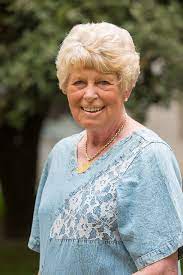Archer, Margaret

Bio: (1943-2023) British sociologist. Margaret Archer got her Ph.D. from the University of London, has taught at the University of Reading, and has taught at the University of Warwick since 1973. She was the first woman president of the International Sociological Association. Margaret Archer is one of the most influential theorists in the tradition of critical realism. Critical realism tries to solve the problem of the relationship between actors and structures in sociological theory. According to Archer, the actors can be both individuals and large organizations, such as trade unions. On the other hand, structures can be found not only at the macro level but also at the micro level of study. It uses the term "culture" to denote intangible phenomena and ideas, which stand in opposition to the structure of material phenomena and interests.
She makes the distinction between the processes of "morphogenesis" which refers to complex and interdependent changes in the system, and on the other hand, the process of "morphostasis" which is characterized by the absence of change. Morphogenesis refers to the properties of systems that arise as a consequence of actions and interactions, but also to the influence that existing structures have on actions and interactions. She believes that there are an infinite number of potential structural changes, as well as changes in actions and interactions. Archer rejects Giddens' theory of structuring, as well as his view that structures and actors should be studied as dualities. She also dealt with the problems of parenthood, as well as the theory of rational choice.
Main works
Culture and Agency: The Place of Culture in Social Theory (1988);
Realist Social Theory: The Morphogenetic Approach (1995);
Critical Realism: Essential Reading (1998);
Rational Choice Theory: Resisting Colonisation (2000);
Structure, Agency and the Internal Conversation (2003);
Transcendence: Critical Realism and God (2004);
Making our Way Through the World (2007);
The Reflexive Imperative (2012);
Social Morphogenesis (2013);
Late Modernity: Trajectories Towards Morphogenic Society (2014);
The Relational Subject (2015);
Human Trafficking: Issues Beyond Criminalization (2016);
Generative Mechanisms Transforming the Social Order (2015);
Morphogenesis and the Crisis of Normativity (2016);
Morphogenesis and Human Flourishing (2017).

